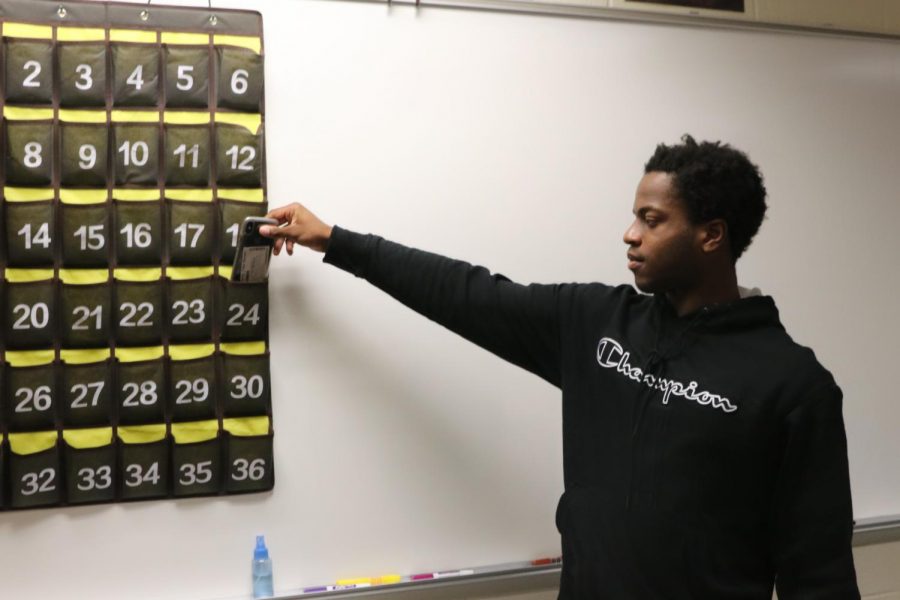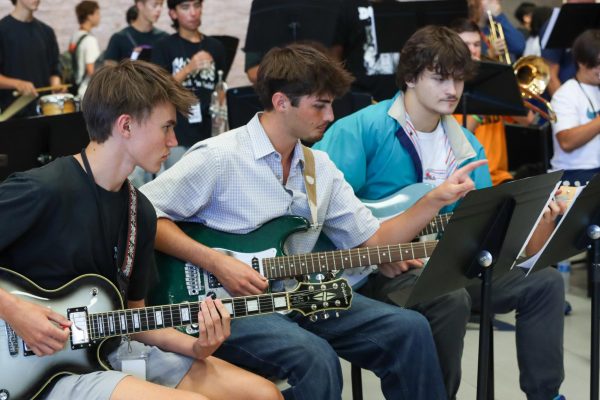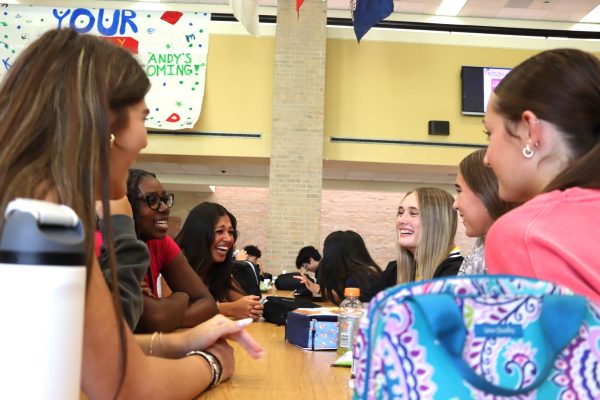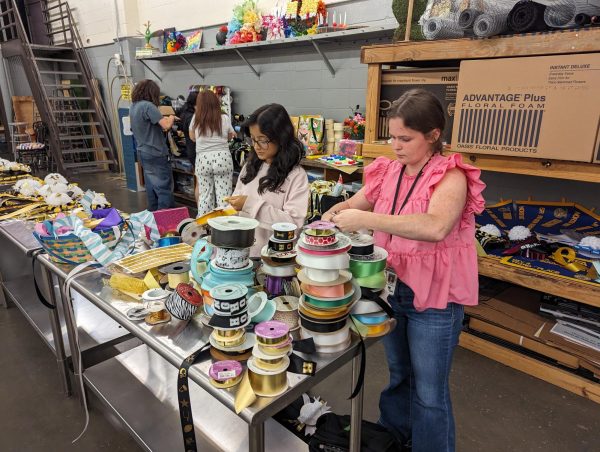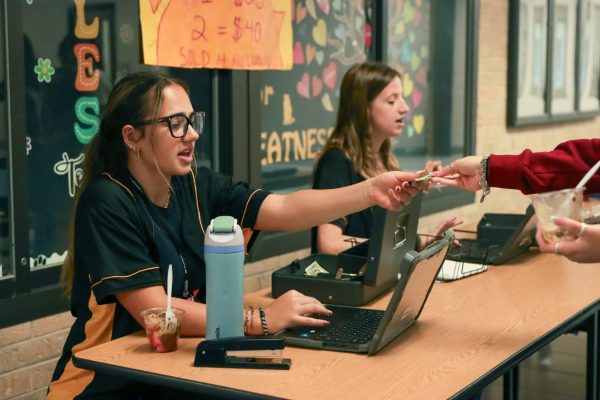Call Me, Beep Me, but Not in Class
Cell phone policy evaluated by teachers, administration, students
Senor David Oderinde puts his phone in ‘phone jail’ for the duration of Brad Rice’s math class. The cell phone policy at Klein Oak differs from teachers to teacher, but the thought about cell phone are the same: when they become a distraction, they are to be put away.
Bright flashing lights on handheld screens dominate the landscape of high school. Cell phones are always gripped in the hands of teenagers, with air-pods fitted snugly in their ears. For many, being without their phone is akin to losing a limb.
While Klein Oak’s administration and faculty try to address the issue of creating a universal cell phone policy, they find that it often changes as quickly as the screensaver on the student cell phones.
“We really don’t have a solid [cell phone policy] like other campuses. We used to have the green paper, yellow paper, so on and so forth, and it’s not working, ” Pre-Calculus Pre-AP and Statistics teacher Evelyn Dino-Slaughter said. “[We need] just one single policy, very straight to the point with very simple instructions that is not subject to interpretation. It will benefit teachers and students.”
Most teachers have their own policies that rule in their classrooms when it comes to cell phones. They make them as strict and lax as they need to be, depending on the situation.
“My policy is that cell phones and their accessories should be out of sight as soon as the bell rings; they are a distraction. A lot of times it’s [putting the phones away] is even from their parents,” Algebra I Pre-AP and Geometry Pre-AP teacher Kathy Long said. “They should be put away – out of sight out of mind. And if an emergency happens, the schools will come and get you. But I do think, occasionally, letting kids listen to music while they work is a nice break.”
This issue has become so prominent that administration had to weigh in on the issue. During the winter break, many teachers met up with the administration in order to discuss how to shape Klein Oak’s Cell Phone Policy.
“The purpose [of the meeting] was to find different ways to reduce discipline over the phones, but also to get kids to put them away in class so they will be more engaged,” Assistant Principal Julie Maderas said. “As far as my opinion on the issue, I’m torn. While I want to say that I don’t think [students] should have them out during class, I think it’s up to each teacher to individually manage how they want to do that. The problem comes when teachers tell a student to put the cell phone away, and they refuse or don’t comply, and so if we could fix that problem, there would be no issue.”
Despite the general exasperation from both sides that follows when a teacher asks a student to put away their phone, these policies are made with the students’ best interests in mind.
In other Klein schools, specifically Klein High School, a similar issue with cell phones arose. Klein responded with a more strict cell phone policy that was put into effect.
“[There are] no cell phones or earbuds in classrooms or offices. They can only use their cell phones and earbuds between classes, ” Carrie Davis, a secretary to two assistant principals at Klein High said. “I think everyone enjoys it; the teachers appreciated it. It hasn’t been as hard as an adjustment as I thought it might have been. I think that the students are listening more and having more interactions in the classroom.”
Student opinion on this issue varies. Most are aware of the distraction that cell phones bring, but also the potential benefits.
“I think that we should only have phones in class if you are using it to help your work,” freshman Mark Solis said.
Students also see the phone policy as a way for them to express their own independence.
“If the school really wants us to get ready for college, they shouldn’t care if we’re distracting ourselves,” junior Ysabel Chrystina Rodriguez said. “ It’s our grade, and our lives.”
But in the end, the administration is looking for a solution that allows overall learning for the majority of the students on campus and making the most of every minute of learning.
“Different teachers have different opinions on the cell phone policy,” Dino-Slaughter said. “But we have one goal: to maximize learning and lessen the distractions during class.”


